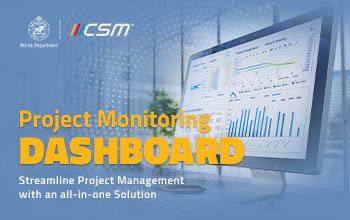.jpg)
Data governance refers to the formulation and implementation of policies, procedures, and standards that govern how data is collected, stored, processed, accessed, shared, and protected. A data governance framework is a set of policies, processes, and roles that define how an entity manages and controls its data. Data governance frameworks ensure the availability, integrity, quality, and security of data while maximizing its value and usefulness for organizations as well as promoting effective data utilization and compliance with relevant regulations and policies.
In Africa, data governance frameworks are still in their early stages of development. The adoption rate of laws on data protection and privacy by countries in the African region stands at 61 %, although it remains lower compared to other global regions such as the Americas at 74 percent and Europe which is at 98 %. Several African countries have enacted data protection laws and frameworks. As of February 2023, 36 out of 54 African nations had established laws or regulations dedicated to safeguarding data. Furthermore, 16 countries had endorsed the African Union Convention on Cyber Security and Personal Data Protection (AUDPC), commonly known as the "Malabo Convention," which was adopted on 27th June 2014. The Malabo Convention stands as a testament to the collective determination of African countries to align data protection efforts. The implementation of the Malabo Convention faces various challenges that span legal, regulatory, technical, infrastructural, capacity building, and harmonization aspects.
.jpg)
Regional Collaborations
Regional collaborations have emerged as pivotal frameworks fostering collective efforts among neighboring nations to address data governance common challenges and pursue shared objectives. For instance, the Southern African Development Community (SADC) which encompasses sixteen countries across southern and central Africa, including Indian Ocean states, eleven of these nations have already established data protection laws. These include Angola, Lesotho, Tanzania Madagascar, Mauritius, Seychelles, South Africa, Zambia, Botswana, Eswatini, and Zimbabwe, while two have ongoing Bills (Namibia, Malawi).23 Efforts have been initiated towards formulating SADC-wide data protection laws and policies. The SADC Model Law on Data Protection serves as a foundational step in this endeavor. This law emerged from the necessity to create unified policies within the Sub-Saharan region.
Initiatives on Data Governance:
Government Initiatives- Government bodies play a pivotal role in effective data governance by allocating essential resources, expertise, and technology to enhance data handling capabilities within government agencies and relevant institutions. Recognizing the potential of data to transform their societies, African governments are undertaking a range of initiatives to strengthen data governance frameworks and promote responsible data practices. Dedicated data regulatory bodies have been established across various African nations, entrusted with overseeing policy implementation, granting data licenses, and investigating breaches.
Civil Society Initiatives- Civil society organizations (CSOs) in Africa are recommended to actively advocate for data privacy protection and ethical data practices. Their role as champions of data privacy is essential in maintaining ethical data governance. They serve as champions of ensuring that data practices align with the interests of the broader population, acting as watchdogs to ensure ethical standards and data subjects' rights are upheld. CSOs actively advocate for data privacy protection and push for the inclusion of perspectives from marginalized groups in data-driven policymaking. Their active engagement and advocacy help uphold transparency, accountability, and ethical data practices.
Initiatives in academics- Institutions contribute to effective data governance through their engagement in data discussions with government entities, sharing knowledge and best practices. 85 Academic institutions should consider partnering with government entities and other stakeholders to pool data resources. This aims to create more comprehensive datasets that can inform evidence-based policy formulation. Such partnerships also foster an inclusive data governance ecosystem, benefiting from the expertise and insights of academic institutions.
Concluding & Scope:
The journey of exploring data governance doesn't stop here. The upcoming report will dive deep into the economic and labor sector in Africa. Focusing on both public and private players is contributing to the data governance landscape. What's even more intriguing is how these players are fostering civic engagement and making sure that gender inclusivity is part of the data governance picture. By digging into these aspects, the African government aims to uncover valuable insights that can help make data governance more fair, inclusive, and effective.
CSM’s Data Governance Practices:
.jpg)
CSM has been proving its expertise in evolving and succeeding in the latest generation of business. While Data Governance presents a more agile and democratic framework that will balance the flexibility to be innovative, with the accountability required for regulations, and to be ethical.
Our data governance of tomorrow is not only about ensuring people are following the right procedures. It is a balancing act of using data for operational effectiveness and decision-making while acting in line with regulatory requirements - and at the same time minimizing the risks associated with poor data management. It is also about enabling the organization to have a clear strategy, vision, and goals around data. Data governance is a great aid to this journey and is an enabler that turns data from information into an actual asset.


























































We will verify and publish your comment soon.